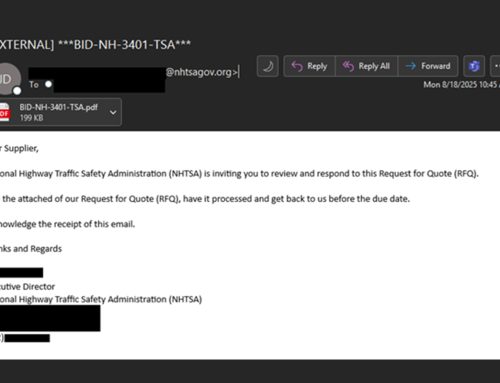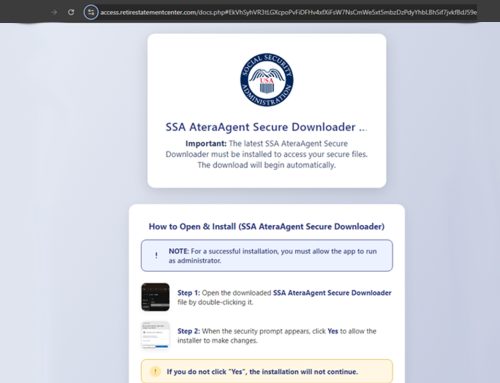Advanced Fee Loan Scam
Scams
April 10, 2025
Threat actors can use phone numbers obtained from past data breaches and public records to randomly call or send messages claiming to be a member of a loan processing team and providing a loan offer that appears too good to be true. They may provide vague details, impose urgent demands, or require advanced fees of a purported loan offer with the intent of stealing personally identifiable information (PII) and financial information, including Social Security numbers and bank account numbers.
The NJCCIC received reports of an advanced fee loan scam in which threat actors posed as lenders, guaranteed the loan approval without official credit checks, offered low rates or fees, and asked for money upfront. The victims submitted a supposed loan application and paid a deposit via peer-to-peer money transfer platforms typically used with these scams. The deposits were nominal due to a false claim of a low credit score or based on a percentage of the fake loan amount. In one scam, the victim applied for a loan and paid a $1,350 deposit via Zelle. In another scam, the victim was offered a several million-dollar loan with a reasonable rate and a four percent deposit. Once the victims paid the deposits, the so-called lenders stole their information and funds and never responded to the victims’ subsequent inquiries. Threat actors can use this stolen information to impersonate victims, apply for loans or lines of credit, access bank accounts, and steal additional funds.
Recommendations
- Refrain from responding to communications, opening attachments, and clicking links from unknown senders, and exercise caution when communicating with known senders.
- Research lenders thoroughly and check reviews to ensure the lender is legitimate before providing sensitive information.
- If funds are unintentionally wired to a fraudulent account, immediately notify the financial institution, the FBI, and the US Secret Service so that attempts can be made to stop the wire transfer. Unless the fraudulent transaction is discovered quickly (typically within 48 hours), it can be difficult, if not impossible, to return the stolen funds.
- Report these types of scams to the FTC, FBI’s IC3, and the NJCCIC.
- If personally identifiable information (PII) has been compromised, review the Identity Theft and Compromised PII NJCCIC product for additional recommendations and resources, including credit freezes and enabling MFA on accounts.





